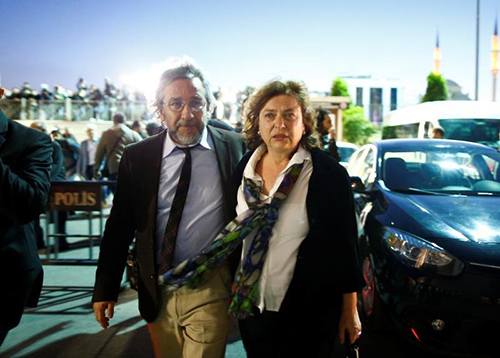CPJ Europe and Central Asia Program Coordinator Nina Ognianova today testified before the Europe, Eurasia, and Emerging Threats Subcommittee of the U.S. House Foreign Affairs Committee, at the hearing, “Turkey after the July Coup Attempt.”
Ognianova focused on how Turkey’s crackdown on critical and independent media in Turkey has accelerated in the aftermath of a failed attempted coup on July 15, when rogue military officers tried to topple the government of the ruling Justice and Development Party (AKP).
In less than two months, authorities have detained more than 100 journalists, shut down more than 100 media outlets, censored at least 30 news websites, and stripped more than 600 members of the press of their credentials, Ognianova told the subcommittee. The scope of the purge has spread beyond the requirements of the safety and security of the Turkish state. Multiple journalists have had passports cancelled, others have been forced into exile to avoid politically motivated prosecution and imprisonment, and there have been reports of journalists being mistreated in custody. The punitive actions have been extended to journalists’ family members, including Dilek Dündar, the wife of prominent journalist and International Press Freedom Awardee Can Dündar. Turkish authorities confiscated her passport without explanation earlier this month.
In addition to highlighting Turkey’s key methods of censorship, Ognianova made recommendations to U.S. government leaders on how to affect positive change. “While it is important to condemn the coup attempt of July 15, we strongly urge Turkey’s international partners, specifically the United States, to condemn the continuing purge of opposition and independent media that has followed the attempted coup,” she said.
Ognianova urged the U.S. not to honor Turkish arrest warrants issued for journalists in the post-coup purge, and to encourage other countries to also not honor the warrants.
To read CPJ’s full testimony and recommendations, click here.
